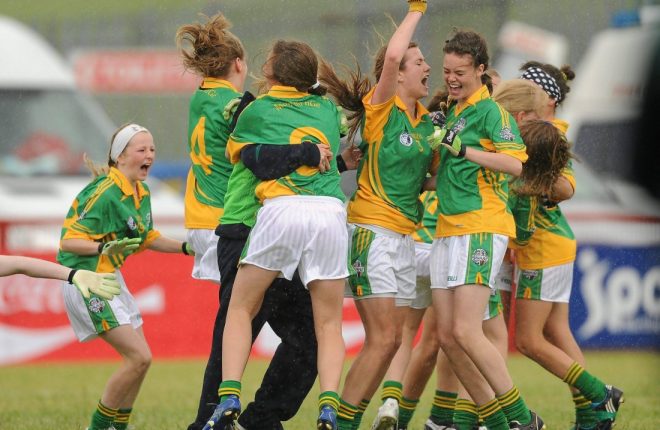
The motivation teachniques used for adults will not necessarily work for children
I published three articles recently on ‘Motivating Players’ both male and female, and the process caused me to recall a period when I was coaching younger players, between 4-18 years old.
It was during that time that I learnt and understood the true meaning of motivation.
Without ‘Motive’ and ‘Action’ there cannot be motivation.
I spent almost two decades coaching my club’s U10s with Charlie Vernon, Declan McKenna and Paddy Morrison eventually breaking into county squads.
When Mick Bohan asked me to help him restructure underage coaching in his club, Clontarf, Dublin, in the early 90s, so began my rounds of helping out other Dublin clubs over the next 20 years, eg, St Vincent’s; Kilmacud; Na Fianna; St Peregrines; Fingallians, to name but a few.
For over a decade, I’ve visited and worked with Eire Og underage coaches in Carlow and during three-week long summer camps for elite 12-16 year boys and girls from all over Ireland, organised by Dermot McArdle’s company, Gaelic Performance, I was one of the resident coaches.
In those camps I had the pleasure of working with Jack McCaffrey (Dublin) and Mark and Ryan McHugh (Donegal), whose talent was already shining bright in their early teens.
The first lesson I learnt was that the coach’s first duty to young players is to instil the love of their sport into each youngster – the ‘Ignition’ process, ie, fire their interest to master their sport.
After that, motivating young players is easy. They are less complicated than older players.
For younger players it’s simple, they just want to have fun. That is clearly their biggest motivation factor. There are yet some things you need to do to keep their attention, eg:
(i) Be well prepared and organised with a good practice plan (posted on dressing room wall) to keep things moving efficiently; (ii) No confusion; (iii) No line queues, otherwise activities get out of control; (iv) Youngsters love to move and play.
Tips to keep sessions fun and motivate young players
(a) Keep lectures short (two minutes or less) – any longer the youngsters will be in ‘lala’ land. They come to have fun, not to listen to coach lecture most of the session.
(b) Keep activities short and fun – small sided: five minutes long; half or full pitch: ten minutes or less. If activities are too long they become monotonous and players lose interest.
(c) Blow the whistle once – letting them know this grabs attention more than shouting, or clap your hands once.
(d) When you need to talk – call ‘circle’ for ‘kids’ to run in and sit round you as you also sit – be at their level. Congratulate them for doing so, even ‘high fives’.
(e) Treats – if possible, arrange with parents to have a ‘treat’ after sessions.
When I was coaching Harps U10s, year on year, every Saturday, from April to September, I took bus loads on sightseeing tours with games on the way home against clubs all over Ireland.
What is important to young players?
In a phrase – ‘learn skills, be with friends and get exercise. No mention of winning. In 1990 a survey of 20,000+ young sports people in Britain and Ireland listed in rank order the answers to the question, “Why do you participate in sport?” In rank order, the answers were:
(i) To have fun; (ii) To improve their skills; (iii) To stay in shape; (iv) To do something they’re good at; (v) The excitement of the competition; (vi) To get exercise; (vii) To play as part of a team; (viii) The challenge of the competition; (ix) To learn new skills; (x) To win.
Over 65% said they participate to be with friends, only 20% wanted to improve skills and 15% reluctantly joined in.
Note: ‘Fun’ was top and ‘winning’ was last.
Thus, based on what’s important to young players, it’s clear that as their coach your motivational methods should be:
- 1. Make it fun.
- 2. Be a teacher/teach skills effectively so that each player ‘masters’ the skill movement.
- 3. Show how and emphasise improvement.
- 4. Celebrate small successes, eg, 100 things done 1% better is more rewarding than one thing done 100% better.
- 5. Relentlessly reward hard work and offer positive reinforcement.
- 6. Show you care.
- 7. Occasionally mix in some competition without overdoing it.
- 8. Promote and emphasise teamwork.
- 9. Keep sessions fresh, fast paced and moving.
Go on, loosen up coach and motivate your young players.
Receive quality journalism wherever you are, on any device. Keep up to date from the comfort of your own home with a digital subscription.
Any time | Any place | Anywhere











